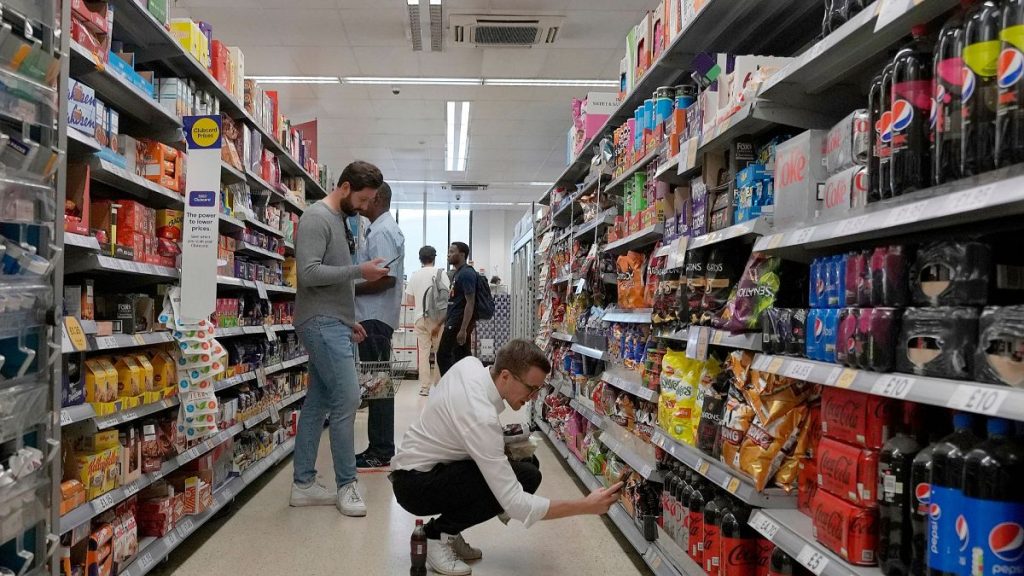A wave of consumer activism has swept across the Balkan region, manifesting in widespread boycotts of major supermarket chains as citizens grapple with escalating grocery prices and a deepening cost of living crisis. Initiated in Croatia by the consumer rights group “Halo, inspektore” (Hello, Inspector), the movement rapidly gained momentum through social media, spreading to neighboring countries like Bosnia and Herzegovina, Montenegro, and Serbia. This collective action underscores the growing frustration and economic strain felt by individuals across the region, struggling to afford basic necessities in the face of persistent inflation. The boycotts represent a powerful statement of public discontent, urging governments and retailers to address the pressing issue of affordability and implement measures to alleviate the financial burden on households.
The initial spark for the boycotts ignited in Croatia the previous week when “Halo, inspektore” called upon consumers to abstain from supermarket shopping. Images of deserted stores circulated on social media, demonstrating the significant public support for the initiative. The group subsequently intensified its campaign, announcing a week-long boycott targeting specific supermarket chains like Eurospin, Lidl, and DM, while also encouraging a complete avoidance of spending on a designated Friday. This escalating action served to amplify the message of protest and further solidify the movement’s presence in the public consciousness. The resonance of the campaign resonated beyond Croatia’s borders, capturing the attention of citizens in other Balkan nations facing similar economic challenges, thereby transforming a national initiative into a regional phenomenon.
The growing momentum behind the boycotts even drew the attention of political figures, notably Montenegro’s Prime Minister Milojko Spajić, who publicly expressed his support for the action. In Croatia itself, the government responded to the mounting pressure by expanding its list of price-capped essential goods, adding 40 more items to the existing 30. This intervention, aimed at safeguarding vulnerable populations from the brunt of inflation, included staples such as cheese, coffee, and household necessities like soap. The Croatian government’s move underscores the impact of the boycotts in prompting official action to mitigate the economic hardship faced by its citizens. The expanding list of price-controlled goods reflects an attempt to address the public’s concerns and stabilize the cost of essential commodities.
The economic impact of the boycotts became readily apparent in Croatia, where supermarket transactions plummeted by a significant 44% on the designated boycott day, leading to a 53% decline in overall sales, according to tax authorities. These figures provide concrete evidence of the effectiveness of the consumer-led action in impacting retail revenue and sending a clear message to retailers about the public’s dissatisfaction with rising prices. Croatia’s inflation rate, reaching 4.5% in December, exceeded the Eurozone average of 2.4%, highlighting the country’s vulnerability to escalating costs. The price caps initially introduced in 2022 were a direct response to the price surges triggered by the combined effects of the war in Ukraine and the lingering repercussions of the COVID-19 pandemic.
In the face of mounting public pressure and the tangible financial repercussions of the boycotts, supermarket chains in Croatia began to adjust their pricing strategies. Kaufland Croatia, for example, announced price reductions on over 1,000 products, while Konzum, another major retailer, pledged a €1 million investment in lowering and freezing prices on 250 domestic items not already subject to government price caps. These actions by major retailers suggest a recognition of the consumer movement’s strength and a strategic effort to regain public trust and mitigate further sales losses. The price adjustments also indicate a shift in market dynamics, with retailers responding to consumer demands for greater affordability in the face of economic hardship.
The Balkan supermarket boycotts represent a potent demonstration of consumer power in challenging rising living costs amidst a challenging economic climate. The rapid spread of the movement across national borders, facilitated by social media, highlights the shared struggles faced by citizens in the region. The boycotts have not only impacted retail sales but also prompted government intervention and retailer price adjustments, emphasizing the potential for collective action to influence economic policy and market behavior. The ongoing cost of living crisis, exacerbated by global events and regional economic vulnerabilities, continues to fuel public discontent and calls for greater affordability and economic stability. The boycotts serve as a stark reminder of the importance of addressing the needs of vulnerable populations and ensuring access to essential goods at reasonable prices.














